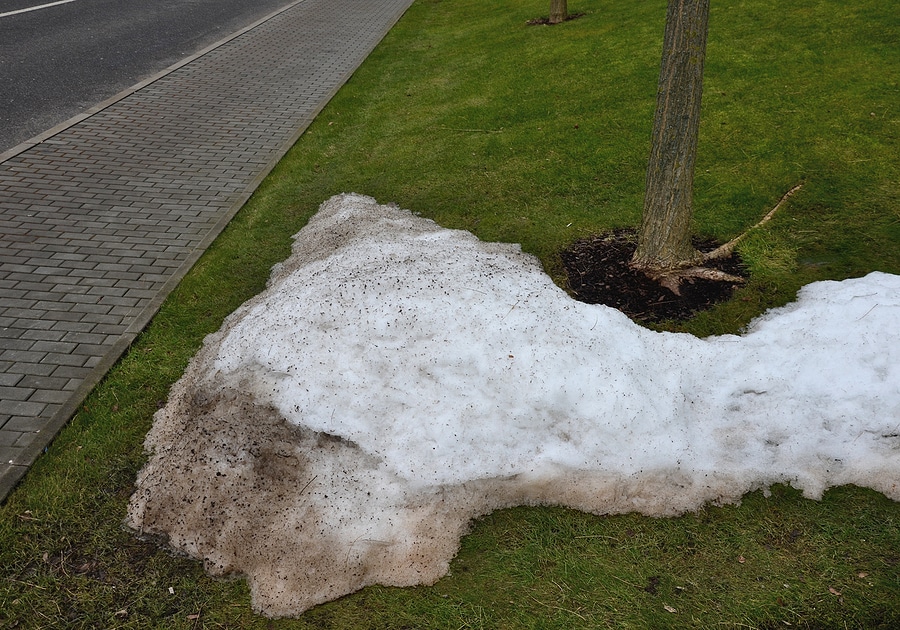Protect Your Lawn from Winter Damage
Cold weather can be damaging to your lawn. If you’re not careful, winter damage could lead to a patchy, unhealthy yard come spring. Fortunately, there are some steps you can take to protect your grass from winter. Read on as we discuss the causes of winter lawn damage and the best ways to prevent it. Then, give Blue Duck Lawn Care a call for professional lawn guidance.

Causes of Winter Lawn Damage
The most common cause of winter lawn damage is snow mold—A type of fungi that grows in the presence of moisture and low temperatures. Snow mold appears on your lawn as spots or patches of discolored grass. Eventually, this grass turns brown and dies. Other causes of winter lawn damage include extreme cold temperatures, salt residue, and inadequate protection from snow cover or mulch.
Preventing Is Key
The best way to prevent winter lawn damage is to ensure your grass is healthy before the cold weather hits. This means fertilizing your lawn in late summer or early fall with a fertilizer specifically for cool-season grasses like Kentucky bluegrass or bentgrass. Additionally, you should mow your grass until it stops growing (usually around late fall) and aerate it, if necessary. This will help create better drainage so that melted snow won’t pool up on top of your grass when it rains or snows.
Treatment Is Possible
Winter lawn damage can be a major setback come springtime, but with the right treatment, you can restore your yard to its former glory. The key is to treat damage as soon as it occurs so that further damage isn’t done and the recovery process begins. However, if treatment isn’t something you want to deal with, then call in the professionals.
We’ll Treat Your Lawn
Are you worried about lawn damage? Then, pick up the phone and call Blue Duck Lawn Care & Pest Control Services at (317) 748-3153. Our team of experts will help restore your yard using our knowledge and years of experience. We’ll also discuss lawn care moving forward, whether it be fertilization, aeration, or grub control. So, if you live in Indianapolis, IN, it’s time to request your estimate!